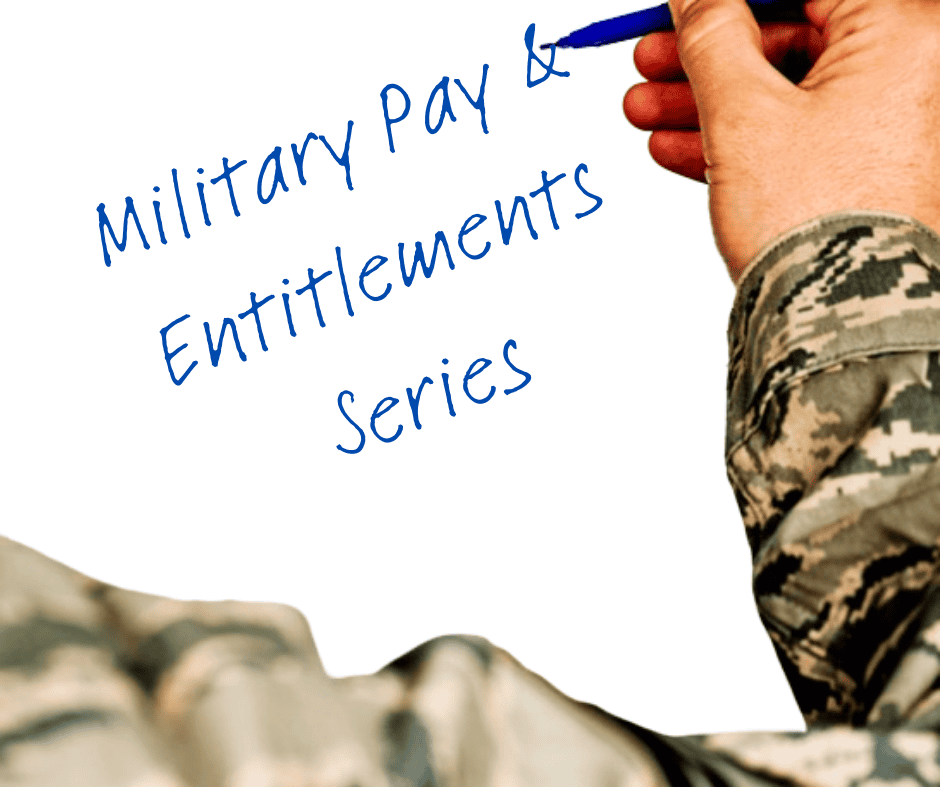Previous Post
Military Pay and Entitlements – Additional Special and Incentive Pays
Posted on March 28, 2024 by Charlie Marlow
Foreign Language Proficiency Bonus (FLPB)
The Secretary of the Military Department concerned will pay FLPB not to exceed $12,000 per year ($500 per month for one language or $1,000 for two or more languages) to a member that has been certified proficient in a foreign language, or multiple languages or any dialects found on the DoD Strategic Language List, known as the SLL. Entitlement details and specific proficiency requirements are contained in the DODFMR Volume 7A, Chapter 19.
Hardship Duty Pay (HDP)
There are four types of Hardship Duty Pay:
- HDP – L based on location
- HDP – M based on mission
- HDP – T based on operations tempo
- HDP – Restriction of Movement (ROM)
HDP – L is designed to recognize service where the living situations are significantly lower in conditions than the standard conditions within CONUS and to provide equity across DoD for Service members assigned to these locations. Table 17-1 (found in DODFMR Volume 7A, Chapter 17) lists the designated locations, monthly amounts, and effective dates for Entitlement to HDP – L for temporary duty begins on the 31st day of in the HDP – L area. Monthly rates for HDP-L range from $50 to $150. When a member is in receipt of Hostile Fire Pay (HFP) or Imminent Danger Pay (IDP), then the maximum amount of HDP – L is $100. The total entitlement of HDP – L plus HFP or IDP in any 1 month may not exceed $325.
HDP – M is designed to recognize permanent or temporary assignment of Service members when conditions are deemed particularly arduous or require Service members to perform duties outside of normal military operations. HDP – M is payable at $150 per month and is not prorated based on the number of days performing a specified mission.
HDP – T is designed to recognize extended or excessive amounts of time outside of a Service member’s permanent duty station (PDS). The number of days needed away from the PDS is determined by the Secretary of the Service concerned. HDP-T will not exceed $500 per month and can be prorated for a month for a member who does not satisfy the eligibility requirements for a full month.
HDP – ROM is designed for Service members ordered by their command to restriction of movement for self-monitoring due to exposure or suspected exposure to COVID-19. HDP – ROM cannot exceed $1,500 per month and it is to be paid at the rate of $100 per day .
A combination of HDP – M, HDP – L, and HDP – T entitlements and pays may not go over $3,500 per month, unless authorized by ASD (M&RA). As of the March 13, 2020, memorandum from ASD (M&RA), HDP – ROM may be paid in addition to all other HDPs and assignment and special duty pays such that the total combined HDP and assignment and special duty pays may not exceed the average monthly amount of $5,000. See DODFMR Volume 7A, Chapter 17 for specifics of these entitlements.
Assignment Incentive Pay (AIP)
Assignment Incentive Pay (AIP) is paid to encourage military members to volunteer for difficult to fill jobs or assignments in less desirable locations or in combat zones. The individual services designate the particular assignments and amounts payable, but may not exceed an average monthly amount of $3,500 in combination with other special duty pays. The DODFMR Volume 7A, Chapter 15 provides guidance for AIP.
Family Separation Allowances (FSA)
FSA is payable to members with dependent, including those members married to another uniformed service member, regardless of any other dependency status. FSA can be paid in addition to other entitlements, including per diem and allowances, that the member qualifies for. The member, however, may not receive more than one payment of FSA for the same period. FSA is intended as compensation for the added expenses incurred because of enforced family separation.
There are Three types of FSA.:
- FSA – R (Family Separation Allowance – Restricted) – When the dependents are not living near the permanent duty station, and the transportation of dependents is not an authorized government expense.
- FSA – S (Family Separation Allowance – Ship) – Payable when a member is on duty aboard a ship and is away homeport continuously for more than 30 days from the homeport or when a member
- FSA – T (Family Separation Allowance – Temporary) – When a member is on TDY continuously for more than 30 days from their permanent duty station and the dependents are not staying at or near the TDY station.
Pays and Incentives for Health Professionals
To recruit and retain qualified medical, dental, and nurses, the DoD has several programs to pay special pays, incentives, and bonuses. There are a number of benefits to each of the programs.
See the applicable DODFMR reference for details of each:
- Health Professions Office (HPO) Special and Incentive Pays DODFMR VOLUME 7A, Chapter 5
- Health Professions Scholarship Program for Active Service DODFMR Volume 7A, Chapter 60
- Health Professions Stipend Program for Selected Reserve Service DODFMR Volume 7A, Chapter 62
- Accession and Continuation Bonuses for Nurse Officer Candidates DODFMR Volume 7A, Chapter 63
Enlisted Member Enlistment, Reenlistment, and Retention Bonuses
Multiple bonuses are available to the active duty enlisted member to enlist, reenlist, or extend their current enlistments. See the DODFMR Volume 7A, Chapter 9 for details about Enlistment, Selective Reenlistment (SRB), Career Selective Reenlistment (CSRB), Prior Service Reenlistment, Conversion, Transfer Between Service, and Voluntary Extension Retention bonuses.
Career Status Bonus (CSB) Chapter and Continuation Pay (CP)
The Military Retirement Reform Act of 1986, (also known as REDUX), covered Uniformed Service members who first became members beginning on or after August 1, 1986 and before January 1, 2018. These members could elect, upon completion of 15 years of Active Duty (AD) in the Uniformed Services, to either retire under the High-3 retirement system or receive a $30,000 CSB and remain under the REDUX retired pay system. The CSB is an entitlement of $30,000 payable in one lump sum or in two, three, four, or five annual installments. After December 31, 2017, the CSB option was no longer authorized.
Continuation Pay is only offered as a one-time bonus payment usually near the middle of the member’s career. It is for Service members of the Uniformed Services covered by the Blended Retirement System (BRS). This is provided in exchange for an agreement of additional service obligations. CP is only payable to members in the BRS. A CP payment is in addition to any other career field-specific incentives or retention bonuses. The Service Secretary concerned determines the CP amount, the timing of when CP is offered, and the duration of the associated additional obligated service. The amount of CP payable depends on whether a member is part of the active component (AC) or reserve component (RC).
For an AC member, CP will be not less than 2.5 times and not more than 13 times the monthly basic pay of an AC member based on the member’s current pay grade and years of service. For an RC member, CP will be an amount not less than 0.5 times and not more than 6 times the monthly basic pay of a member of the same grade and years of service on AD. An RC member performing active Guard and Reserve service will be paid CP at the rate of an AC member subject to agreement to continue serving not less than an additional 3 years in active service. A Service member who accepts CP and enters into an agreement will serve not less than 3 years of additional service, the length of mandatory service to be determined by the Secretary concerned in the component they were serving in at the time of agreement.
The DODFMR Volume 7A, Chapter 66 prescribes the CSB and CP programs along with requirement and payment computation details.
Military Pay & Entitlements Series
1. Introduction
2. Basic Pay
3. Basic Allowance for Subsistence (BAS) – Food Allowance
4. Basic Allowance for Quarters (BAH) – Housing Allowance
5. Common Deductions
6. How to Read Your Leave and Earnings Statement (LES)
7. Uniform and Clothing Allowances
8. Cost of Living Allowance (COLA)
9. Special and Incentive Pays
10. Additional Special and Incentive Pays
11. Overseas or Station Allowance
12. PCS and Travel
13. Special Situations
Military Pay & Entitlements Series – Printable Version of the Whole Series
Explore More with My Military Lifestyle and Finances!
Next Post
Written by
More Military Life Posts












